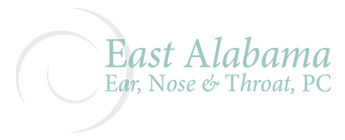Difficulty swallowing is also called dysphagia. It is usually a sign of a problem with your throat or esophagus the muscular tube that moves food and liquids from the back of your mouth to your stomach. Although dysphagia can happen to anyone, it is most common in older adults, babies, and people who have problems of the brain or nervous system.
There are many different problems that can prevent the throat or esophagus from working properly. Some of these are minor, and others are more serious. If you have a hard time swallowing once or twice, you probably do not have a medical problem. But if you have trouble swallowing on a regular basis, you may have a more serious problem that needs treatment.
How is dysphagia diagnosed?
If you are having difficulty swallowing, your doctor will ask questions about your symptoms and examine you. He or she will want to know if you have trouble swallowing solids, liquids, or both. He or she will also want to know where you think foods or liquids are getting stuck, whether and for how long you have had heartburn, and how long you have had difficulty swallowing. He or she may also check your reflexes, muscle strength, and speech.
How is it treated?
Your treatment will depend on what is causing your dysphagia. Treatment for dysphagia includes:
- Exercises for your swallowing muscles. If you have a problem with your brain, nerves, or muscles, you may need to do exercises to train your muscles to work together to help you swallow. You may also need to learn how to position your body or how to put food in your mouth to be able to swallow better.
- Changing the foods you eat. Your doctor may tell you to eat certain foods and liquids to make swallowing easier.
- Dilation. In this treatment, a device is placed down your esophagus to carefully expand any narrow areas of your esophagus. You may need to have the treatment more than once.
- Endoscopy. In some cases, a long, thin scope can be used to remove an object that is stuck in your esophagus.
- Surgery. If you have something blocking your esophagus (such as a tumor or diverticula), you may need surgery to remove it. Surgery is also sometimes used in people who have a problem that affects the lower esophageal muscle (achalasia).
- Medicines. If you have dysphagia related to GERD, heartburn, or esophagitis, prescription medicines may help prevent stomach acid from entering your esophagus. Infections in your esophagus are often treated with antibiotic medicines.
In rare cases, a person who has severe dysphagia may need a feeding tube because he or she is not able to get enough food and liquids.
